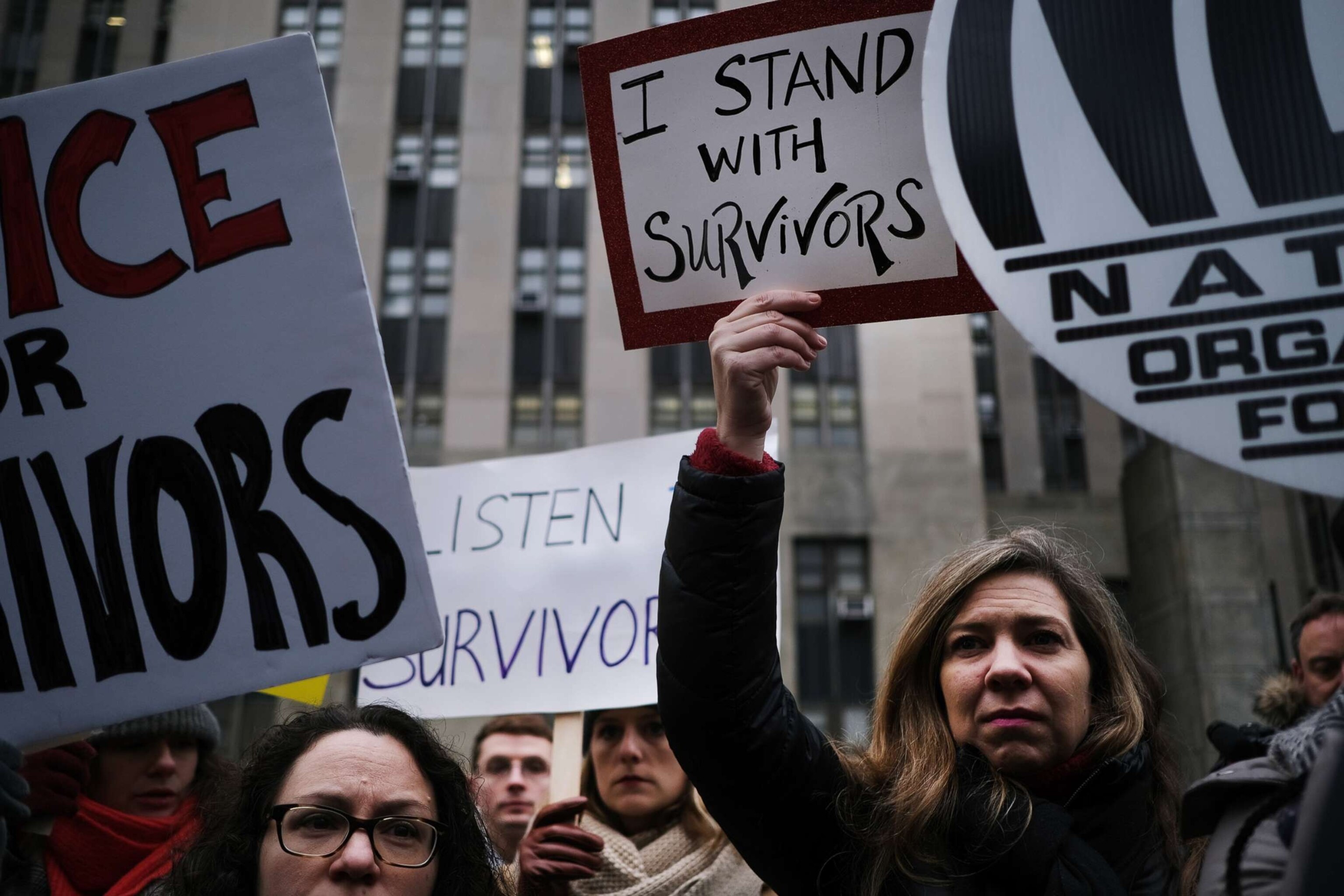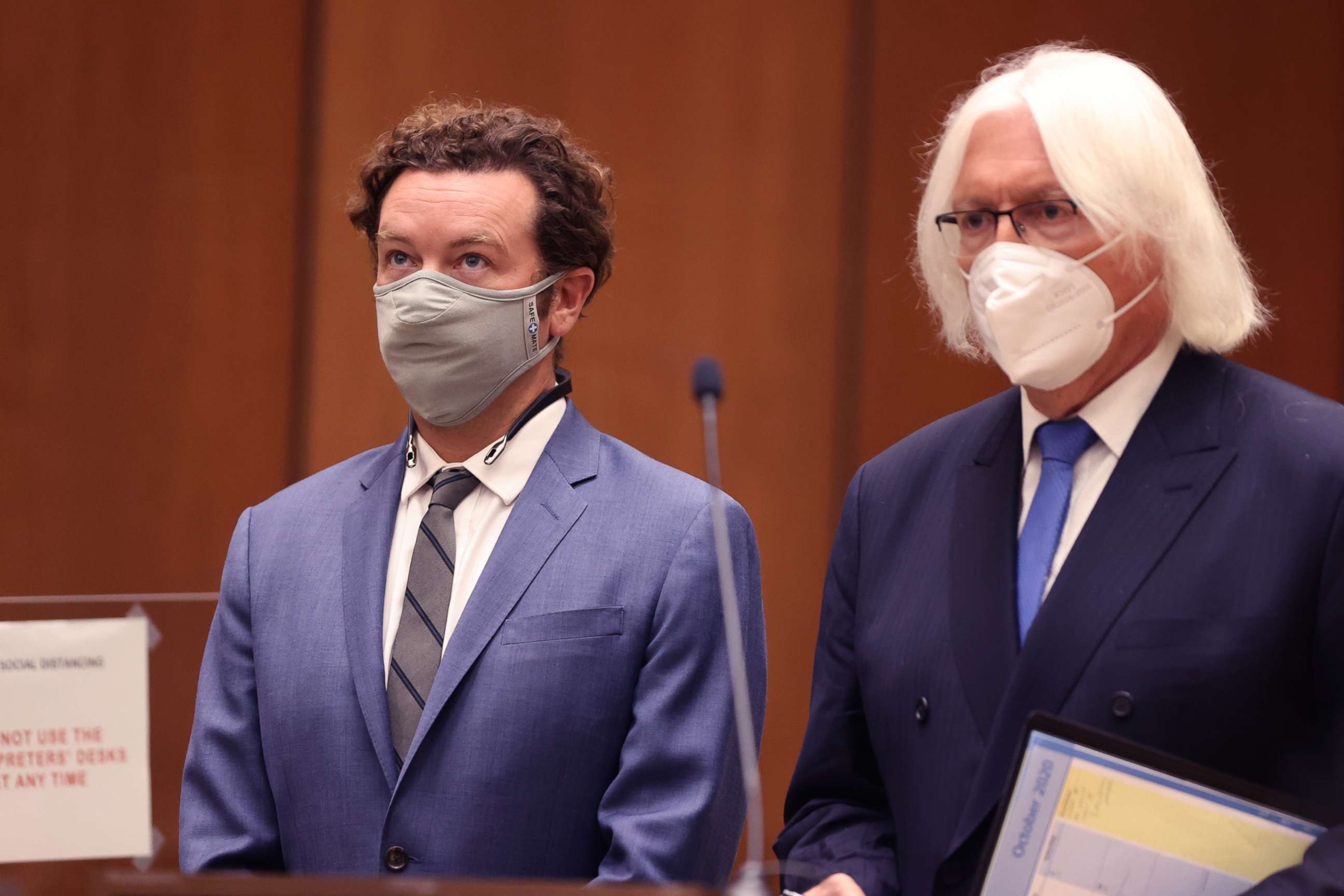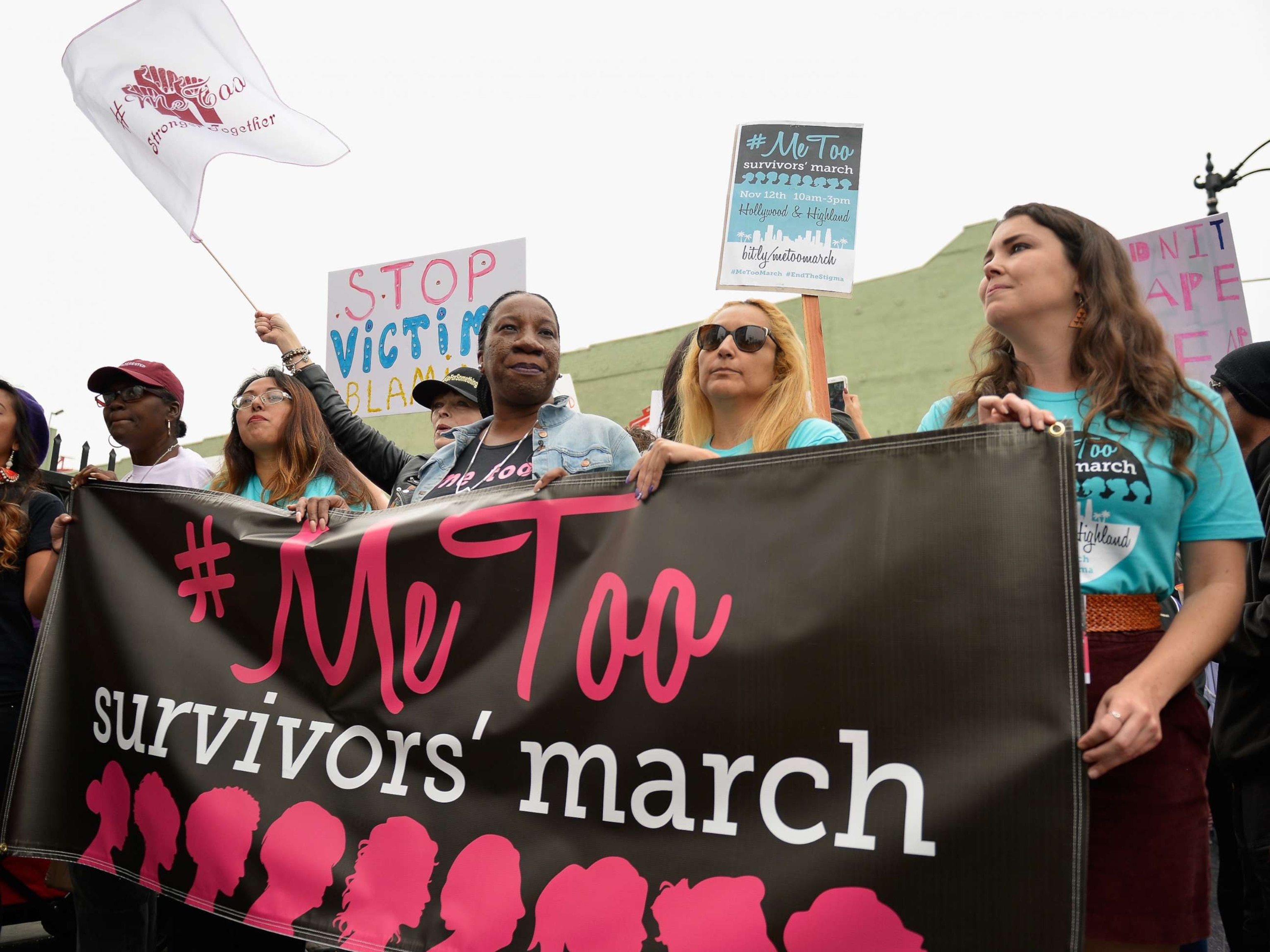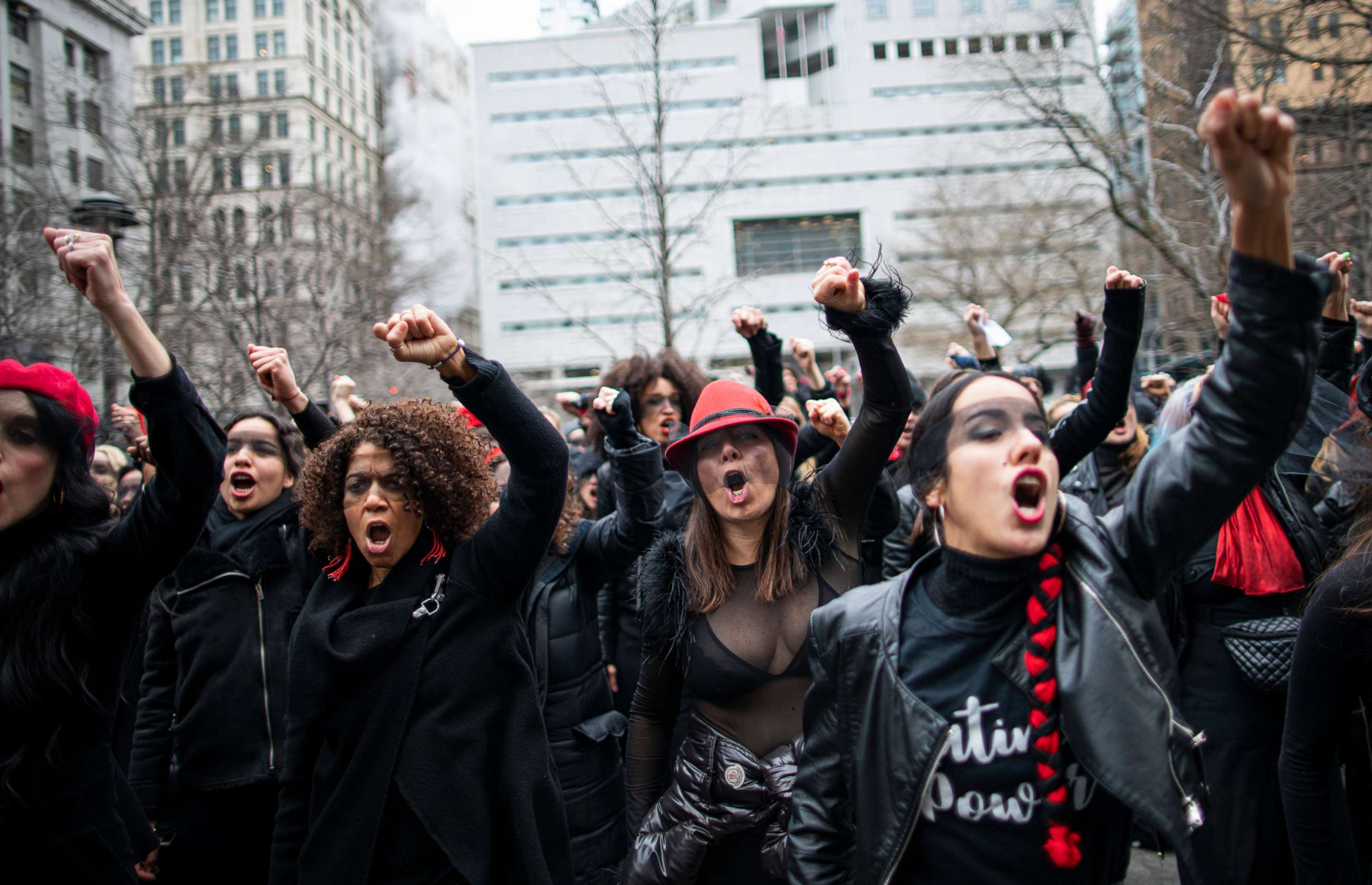Weinstein, Masterson trials highlight the uphill battle to address sexual violence: experts
Weinstein and Masterson are both on trial for criminal charges in Los Angeles.
Harvey Weinstein and Danny Masterson are among the celebrities whose trials on allegations of sexual assault have amplified the #MeToo movement, shedding a light on how industries and law enforcement address claims of sexual harassment and sexual violence.
#MeToo, a social movement that began in 2017 against sexual abuse, harassment and rape, is forcing elected officials, investigators and the media to take a deeper look at the issue and take steps to rectify the problem.
"The real success of #MeToo is its part in changing consciousness and cultural change," Naomi Mezey, the Agnes Williams Sesquicentennial professor of law at Georgetown Law, told ABC News.

And now the movement is entering another chapter, highlighted by high-profile court cases involving two celebrity men.
Harvey Weinstein, whose behavior reignited the #MeToo movement after allegations of sexual assault were made public, and "That 70's Show" actor Danny Masterson are facing rape charges in criminal court in two separate cases in Los Angeles. Weinstein is currently serving a 23-year sentence for his 2020 conviction on rape and sexual assault charges in New York.
Cheryl Bader, an associate clinical professor at Fordham Law School, told ABC News that the trials will highlight key aspects that the movement has been working to highlight and could prove influential.
"I think we've seen a lot of progress but there is still more that needs to be done," she said.
Harvey Weinstein
Weinstein is currently on trial in Los Angeles on rape and sexual assault allegations by five different women in incidents that took place between 2004 and 2013, prosecutors said. The disgraced Hollywood figure, who is appealing his New York conviction, claims sex with the women was consensual.
Melissa Sanchez, a professor of English and the director of the center for research in feminist, queer, and transgender studies at the University of Pennsylvania, told ABC News that even though Weinstein has been convicted in a legal setting and in the court of public opinion, it is still important that prosecutors take every case brought before them by his accusers.

"One thing you can say about the new set of trials in L.A. is that they affirm how long-term and wide-ranging the effects were of Weinstein's alleged sexual violations," Sanchez told ABC News. "By trying him in many jurisdictions it reinforces the scope and scale."
Mezey said that Weinstein's second trial also reinforces one of the major cultural changes that came about from the #MeToo movement: that victims will be heard by law enforcement and their claims will be taken seriously.
"It's less about jumping on a fallen man or making sure he stays in jail. It's more about the small vindication that the victims can get and the legal system itself acknowledging those cases," she said. "Even when it’s a symbolic victory, that can be very powerful both for the victim and the justice system."
Bader added that the Weinstein trial will continue to put pressure on the entertainment industry and other companies that have done little to address these issues.
"The #MeToo movement showed that these situations aren't insurmountable," she said.
Danny Masterson
Masterson's criminal trial began Tuesday and is being conducted in the shadow of his involvement with the Church of Scientology.
The three accusers, one who was Masterson's girlfriend, another who was a friend of Masterson's personal assistant and one who was an acquaintance, claim the actor sexually assaulted them in three separate incidents that took place between 2001 and 2003.
Masterson, who has pleaded not guilty and claims in each instance the sex was consensual, has been a longtime Scientologist. Two of the victims claim they went to the church to discuss the alleged incidents and say they were told that if they reported it to the police they would be ostracized by their friends and even family members, prosecutors said.
In a statement to ABC News, the Church of Scientology said, in part, it has "no policy prohibiting or discouraging members from reporting criminal conduct of Scientologists, or of anyone, to law enforcement. Quite the opposite. Church policy explicitly demands Scientologists abide by all laws of the land."
The Church added, "While [it] will not comment on a pending criminal matter, we know the women’s slanderous allegations about the Church are completely and utterly false...The Church has never harassed, threatened, or attacked these women."

Superior Court Judge Charlaine F. Olmedo reminded the lawyers that Scientology would not dominate at Masterson's trial.
Mezey said the church's alleged involvement should be secondary to the actual allegations.
"This has the potential to be a little bit of salacious gossip of the notoriously secretive Scientology. That would be a shame because there is a real case here with alleged victims," she said.
Sanchez also said that while the rape allegations should be the focus of the trial, the accusations of an alleged church coverup should not be ignored.

She noted that other religious institutions, including the Catholic Church, have been accused of covering up sexual assaults by abusing their influence on their followers.
"With all of the cases, you have a world that the victims wanted to be a part of. You also have the authority that certain industries and religions have over those followers," she said.
The future
No matter what the outcome is of the trials, Sanchez said they will make the public think about how institutions enable male power and prevent any real consequences for taking advantage of women.

Mezey said she hoped that the celebrity angle wouldn't detract from the bigger message of the #MeToo movement, that sexual harassment and violence aren't limited to big-name figures or just the workplace.
"One of the downsides of the celebrity trial is it can lead you to believe this is a problem in Hollywood…when in fact it was for hundreds of years a basic fact of life for many women," she said.
"While these are important cases in their own right, I would hate for them to be representative of the #MeToo movement and the overall importance of the #MeToo movement."




